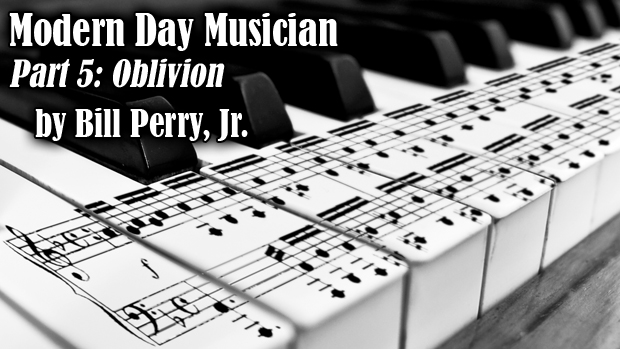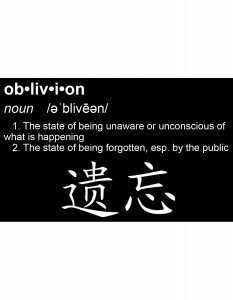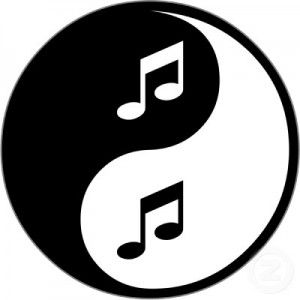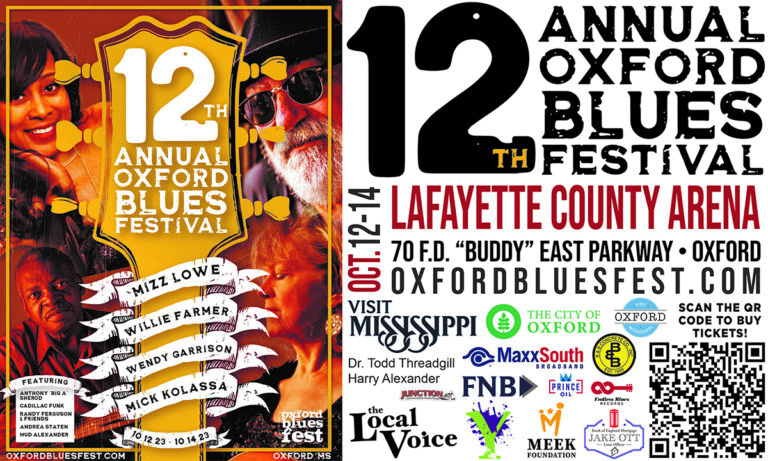
 We have been conditioned to believe that the light illuminates the dark. I believe we have it backwards; it is the darkness that illuminates the light. Consider the cosmos; everything in the universe is encompassed by a vast and immeasurable darkness. And in this darkness, we are able to see the sprinkles of light glittering from afar; illuminating the essence of distant stars, planets, galaxies, nebulas, and a multitude of cosmic events. It is the darkness that allows us to appreciate the brilliant glow from these universal elements. Without the darkness, the light has no allure, thereby making it reliant upon the essence of the dark to accompany its vibrant and exuberant demeanor. The light may try to stand as an affront to darkness, but it also has a symbiotic relationship that binds them together eternally.
We have been conditioned to believe that the light illuminates the dark. I believe we have it backwards; it is the darkness that illuminates the light. Consider the cosmos; everything in the universe is encompassed by a vast and immeasurable darkness. And in this darkness, we are able to see the sprinkles of light glittering from afar; illuminating the essence of distant stars, planets, galaxies, nebulas, and a multitude of cosmic events. It is the darkness that allows us to appreciate the brilliant glow from these universal elements. Without the darkness, the light has no allure, thereby making it reliant upon the essence of the dark to accompany its vibrant and exuberant demeanor. The light may try to stand as an affront to darkness, but it also has a symbiotic relationship that binds them together eternally.
 The same can be said about your spiritual journey in the music universe; there is no light without the dark. But it becomes more complicated than that, for the musician also gets into spiritual sacrifice and musical oblivion. Every performance, every recording, every musical idea that comes into fruition by some means of expression is a sacrifice of the musician’s soul to the masses in hopes of making a connection with them. At any given live performance, the moment the musical artists have completed their song or set, the music no longer belongs to just them, it belongs to the people, the ether, and potentially oblivion, in terms of running the risk of that particular performance being forgotten with the passing of time. Yes, you may can record and document these events for future leisure, but the true essence of that performance belongs to that specific moment in time. Therefore, the music has emerged to entertain, uplift, inspire, and enlighten the listening audience, but once it is dispersed from your soul the music returns back to its original design: sound. The sound in turn is obliterated into what seemingly is “nothingness,” but in actuality it is reunited with the darkness of the universe after it was born from the light through one’s imagination, which was converted into music. Staying productive and creative is a way for a musician to avoid complete and utter oblivion, but the inner spiritual turmoil that one can encounter along their path of “musicianhood” may have one doubt their ability to maintain a consistent flow of creativity and succumbing to the notion of being forgotten, or their existence and contributions becoming lost to the sands of time. It is in these dark times of uncertainty that the light reveals itself, and it is only during these moments that the light can truly be appreciated. The darkness, once again illuminating the light.
The same can be said about your spiritual journey in the music universe; there is no light without the dark. But it becomes more complicated than that, for the musician also gets into spiritual sacrifice and musical oblivion. Every performance, every recording, every musical idea that comes into fruition by some means of expression is a sacrifice of the musician’s soul to the masses in hopes of making a connection with them. At any given live performance, the moment the musical artists have completed their song or set, the music no longer belongs to just them, it belongs to the people, the ether, and potentially oblivion, in terms of running the risk of that particular performance being forgotten with the passing of time. Yes, you may can record and document these events for future leisure, but the true essence of that performance belongs to that specific moment in time. Therefore, the music has emerged to entertain, uplift, inspire, and enlighten the listening audience, but once it is dispersed from your soul the music returns back to its original design: sound. The sound in turn is obliterated into what seemingly is “nothingness,” but in actuality it is reunited with the darkness of the universe after it was born from the light through one’s imagination, which was converted into music. Staying productive and creative is a way for a musician to avoid complete and utter oblivion, but the inner spiritual turmoil that one can encounter along their path of “musicianhood” may have one doubt their ability to maintain a consistent flow of creativity and succumbing to the notion of being forgotten, or their existence and contributions becoming lost to the sands of time. It is in these dark times of uncertainty that the light reveals itself, and it is only during these moments that the light can truly be appreciated. The darkness, once again illuminating the light.
Musical oblivion, to speak of such a thing, suggests that music cannot exist beyond the experience of a performance or a recording. To postulate that this experience can be verified by our understanding of music’s intangibility can be a slippery slope to climb, for if this were true we would have lost every musical experience that has happened on this planet since we began organizing sounds. We would have lost the meaning behind Mother Africa’s drum, the beautiful music produced in Europe, Asia, The American Continents, and anywhere on Earth where music has been produced. Of course we know this is not true. For if that were so, how would we know of any music created in the past? Even beyond documentation, we have passed down music from one generation to the next through storytelling and folklore, including the experiences that go along with the music. Be it spiritual or religious in nature, praising real and mythological figures through song, proclamations of love and love lost, and essentially every type of emotion and experience you can think of, we as humans have kept our music alive through our passion for this mysterious and alluring force. In doing so, the music avoids being consumed by oblivion and stands headstrong against its relentless gnawing. Since music in itself is unaware of what or where it is at any given moment, it is in a constant state of potential annihilation from existence. Music is not a sentient being, but it is born from the minds of sentient beings. This is why it is important for the musician to have a sense of reason and purpose when they are organizing sounds to manifest music, because it is the musical artist that make these sounds spiritually tangible and undeniable to the souls of people and give the music a chance for “eternal life,” be it born from the light or darkness. Oblivion and darkness are usually associated with each other because we interpret “darkness” as an attribute of oblivion: nothingness equals darkness. But to this I say nay, because there is life in the dark, it is the Yang to Yin. There is beauty in the darkness, but it is highly misunderstood. In all the spiritual and moral juxtapositions, good/evil, right/wrong, love/hate, the “right” side of these ethical equations are always associated with “the light” and the other half is always connected with “the dark.” And in believing this, we convince ourselves to “avoid the darkness” because it will consume our souls to even consider dabbling in its chemistry, thereby succumbing to oblivion and complete annihilation.
Indulging in the darkness and allowing sound to transpire through this medium does not necessarily mean total annihilation of our souls, but rather an acknowledgement of the other side of our being. One cannot deny the dark within us, as we cannot deny the light either. It is a question of how far one’s indulgence in either side of their moral juxtapositions is willing to go. Music mirrors the human condition, and how we feel and interpret our surroundings and reality is primarily based on our collective reasoning of what is “good and bad” and by default we assume that if we harness any element from the darkness, we are positioning ourselves for oblivion, slowly becoming unaware of ourselves to the point where we have no sense of identity. But the flaw in this assumed design of light and dark is predicated on the notion of our interpretation of what is innately good and bad, ergo darkness is assumed to be the home of oblivion and the light reflects illumination and understanding. Oblivion consumes souls, not darkness. There is no refuge for sound to seek asylum in the midst of oblivion, but there is hope for sound that has traveled through the wormhole of darkness because the dark does not seek to destroy our souls, it is in fact a part of our duality in life and in nature. And if one understands this, they are able to wield the power of what the dark has to offer as they would when seeking the illumination of the light in their music. If you are a nihilist and believe in nothing, oblivion will surface and reveal itself as an alternate passageway for your art to travel through, with nothingness as its predisposed destination. But if you believe in religious and/or spiritual doctrines, or just feel you have a genuine connection to the cosmos, the power of the universe is nothing to fear or doubt from either side of the fence, because of the faith and foundation these belief structures provide the artist/musician to have as plausible evidence that there is something “bigger and more significant” in the universe than themselves. I would assume that there is not any musician alive or that ever lived that did not erect a piece of music based on their experience from the darkness within them. And I would also postulate that the essence of their music did not become a part of oblivion because they chose to express the darkness within, that they were able to keep the spirit of their music intact while embarking on their journey into unknown territory within the regions of their souls and minds.
Once you have tied down your music to the tracks of oblivion, it is inevitable that it will soon be ran over and obliterated into nothing. But if you are fully aware of your cosmic surroundings, be it light or dark, you are in a firmer position to dictate the direction of your music and allowing it to live and be free. Songs and compositions are the children of music, and the musician nurtures the sounds that become music. So consequently, we do not wish to see any “harm” befall our children of sound and protect them from the abyss of nothingness. We accomplish this through the creative process and sharing our music with anyone who is privy to hear what it is our sound is trying to convey emotionally and spiritually. Intertwining our music with the light and darkness enables our sound to venture into the deepest areas of our souls, and allows music to persist and maintain continuity through the fabrics of space and time.
 Considering that oblivion is defined as a state of being unaware of what is happening or complete extinction, “the light” can also consume and destroy the essence of life. Light can be as blinding and as devastating as a radiant super nova, leaving one in a state of being unaware of one’s surroundings and being susceptible to the unknown and spiritual oblivion. When a star explodes into a super nova, it leaves a black hole in its wake; light bringing forth destructive and consuming darkness. Music can also take on the characteristics of being a blinding light to some, and leaving in its wake a maelstrom of mayhem. Sometimes music is accused of inciting violence and fueling rage, like in the case of music that speak of rebellion, anarchy, street crimes, conspiracy, cults and rituals, and even broken hearts. The presumed wisdom of these forms of musical expressions can appear to be “the light” and convey a shared interest in seeing a need for change and understanding to most people who take in these “messages of truth”, ergo “the light” shines a spotlight on the perceived reality of a given situation and makes the listening audience feel connected to a common cause or interest with the musical artist. But if the light (the message) asks of you to follow its essence blindly and obtusely, not being aware or ignoring the other side of reality (the dark), this pathway could also corrupt your spirit and leave you in a state of unawareness; oblivion.
Considering that oblivion is defined as a state of being unaware of what is happening or complete extinction, “the light” can also consume and destroy the essence of life. Light can be as blinding and as devastating as a radiant super nova, leaving one in a state of being unaware of one’s surroundings and being susceptible to the unknown and spiritual oblivion. When a star explodes into a super nova, it leaves a black hole in its wake; light bringing forth destructive and consuming darkness. Music can also take on the characteristics of being a blinding light to some, and leaving in its wake a maelstrom of mayhem. Sometimes music is accused of inciting violence and fueling rage, like in the case of music that speak of rebellion, anarchy, street crimes, conspiracy, cults and rituals, and even broken hearts. The presumed wisdom of these forms of musical expressions can appear to be “the light” and convey a shared interest in seeing a need for change and understanding to most people who take in these “messages of truth”, ergo “the light” shines a spotlight on the perceived reality of a given situation and makes the listening audience feel connected to a common cause or interest with the musical artist. But if the light (the message) asks of you to follow its essence blindly and obtusely, not being aware or ignoring the other side of reality (the dark), this pathway could also corrupt your spirit and leave you in a state of unawareness; oblivion.
Another way to point out how “the light” can be corrupting in regards to musical oblivion, you would not want to hear your favorite song, performance, solo, or any favorite musical experience every single second of your life, for the rest of your life! It would ultimately drive you to detest that piece of music or musical moment, and reject it every time you hear it. Albeit, it may provide a “positive light” in your life, but to experience that every second would become incredibly redundant and mundane to say the least. And you would no longer be able to value and appreciate why you liked that song or performance to begin with, and its essence would be lost to oblivion. The light of the song becomes dim, and eventually fades into nothing. Parental discretion is advised for the following sentence. Imagine if you had an orgasm every second of your life, for the rest of your life! No matter how great that sensation may be, to experience that feeling 24/7 would inevitably consume and destroy you. I know you were not expecting the “orgasm analogy”, but that is a sensation produced from a positive light and energy that we all know and feel, and if nature had not allowed for that feeling to disperse into oblivion after a certain duration, we would find ourselves perhaps “afraid” to experience an orgasm; a fear of ecstasy being a gateway to personal annihilation of our senses and essence. Too much of anything, good or bad, light or dark, would be a violation and an affront to nature. As a musician, when your soul is balanced your music is balanced. And when you recognize the beauty and the horror of the light and the dark, your music will reflect equilibrium with the universe and everything in it. One cannot know if the music they compose will be aligned with oblivion one day, but having the fortitude to stay creative and maintaining a genuine love and passion for the art of sound will at least guarantee the survival of your music for a lifetime, and hopefully beyond. The moment you construct a body of music and share it with people, it is almost certain that it will outlast you. As to where it will stand in time after you have passed from this world is ultimately up to time itself. But your music can still stand as an affront to oblivion, if your music embodies the essence from the light and the dark. And with a strong resounding roar from beyond this realm of reality through the music you left behind, you can lastly proclaim “Forget me not. Forget me not. Forget me…….not.”
The End
–
This article was originally printed in two parts, in The Local Voice #138 (published August 25, 2011) and The Local Voice #139 (published September 8, 2011).
–


